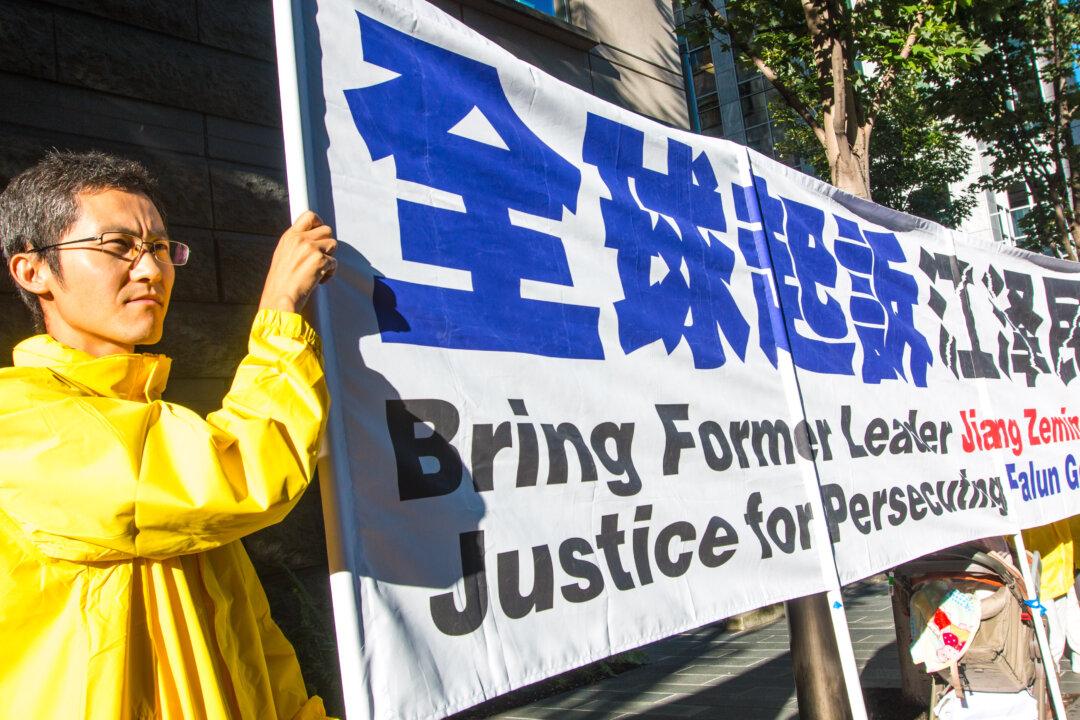As Chinese Communist Party leader Xi Jinping arrived in Seattle, beginning a weeklong stay in the United States, what greeted him on Sept. 22 was more than just legions of blood-red flags and scripted praise.
Practitioners of Falun Gong, a traditional spiritual discipline persecuted by the Chinese regime since 1999, are calling upon General Secretary Xi to bring Jiang Zemin, the retired Party boss who personally launched the deadly repression against the practice, to justice.
The practitioners held posters condemning Jiang and those known to play key roles in the persecution as Xi’s motorcade rolled by. Their presence in Seattle is just one point in the context of greater events unfolding in China in recent months and years.
Since this May, Chinese citizens have submitted over 100,000 legal complaints to China’s highest judicial bodies, the Supreme People’s Court and the Supreme People’s Procuratorate, calling for Jiang Zemin to be prosecuted for his crimes against humanity.
The Falun Gong website Minghui has documented the growing volume of these submissions.




